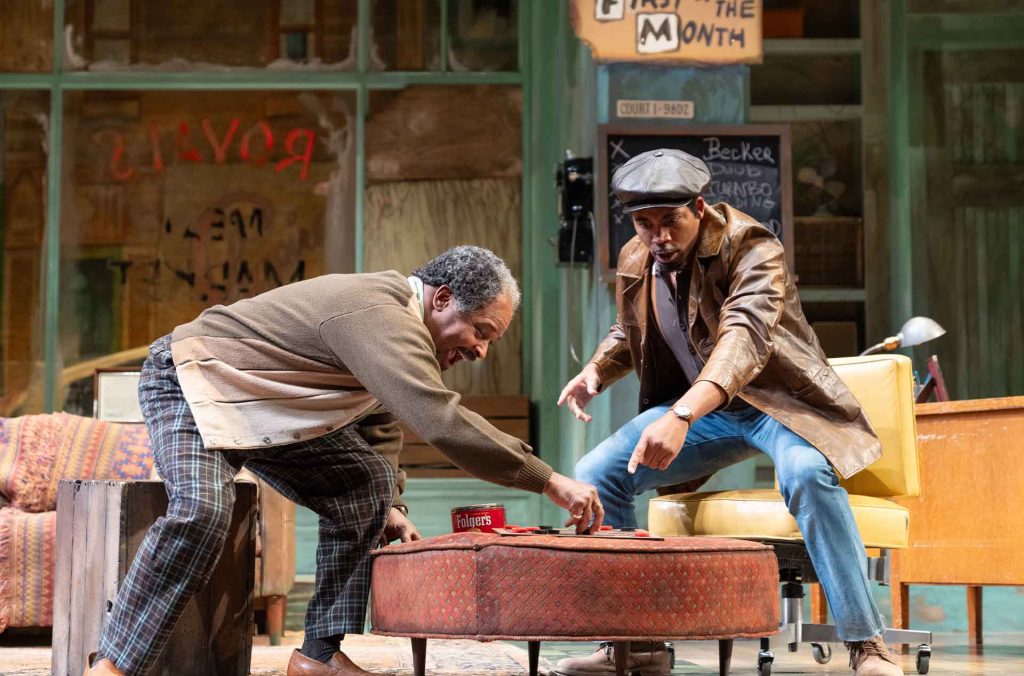
Turnbo and Youngblood playing checkers. Photo by Jenny Graham.
Jitney
By August Wilson
Directed by Tim Bond
Ashland, OR at the Oregon Shakespeare Festival
March 9 – July 20, 2025
When a theater performance presents a work spectacularly written, directed by someone who feels and understands the author, and acted by a completely talented set of actors I don’t know what to say and instead even look for a flaw to hang on to. There is a flaw in Oregon Shakespeare Festival’s Jitney: it doesn’t run all season and instead closes July 20th. That is a genuine mistake.
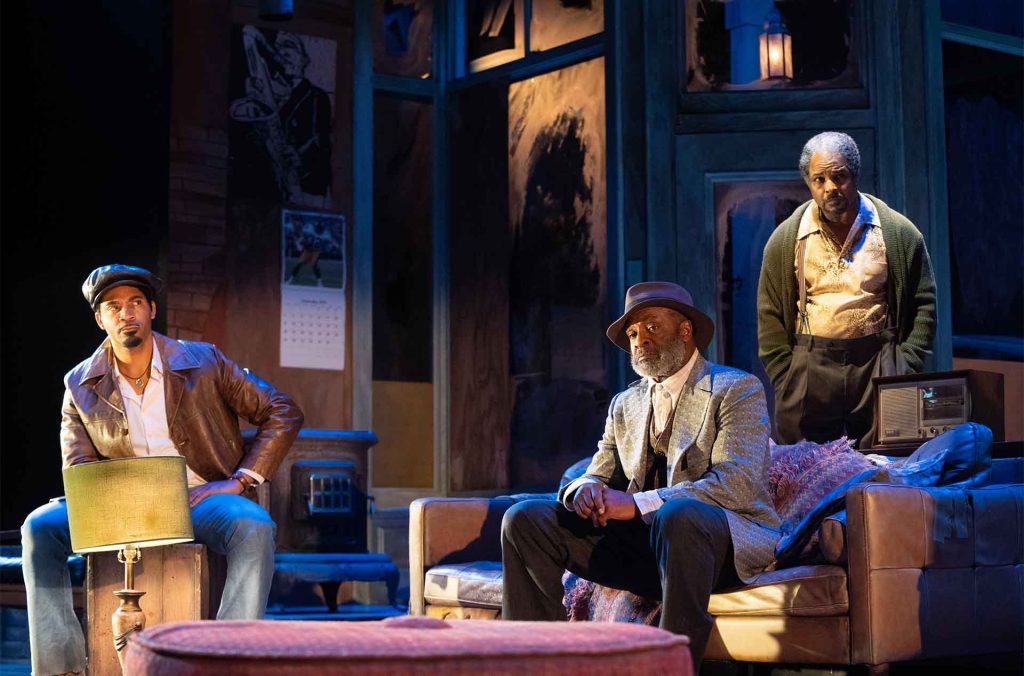
Youngblood, Fielding, and Turnbo in a discussion. Photo by Jenny Graham.
Jitney covers the 1970’s in Wilson’s 20th Century Cycle and the ‘70’s are important to my personal understanding of the world. Seeing Jitney’s snips of Black life from that period and contrasting them to what was going on in my white life, adding my perspective then and now about what Black communities were like, pushed this play to the top of my list of Wilson plays.
The basic setting is simple. We are in the office of a jitney service in Pittsburg that provided rides to people in the Black community at a time when white taxis would not go into Black areas.
We watch the interaction between people who come into the office, mostly the drivers who wait for their next ride request to call in. We get to watch a cross-section of characters inform us about their life while they mostly politely spar for rides and approval.
Throughout the show, director Tim Bond has made sure the people and setting are clear and consistent. Everything belongs there on stage.
The most informative character is Turnbo (Kevin Kenerly), a judgmental, opinionated, non-stop talker. Kenerly gives Turnbo’s diatribes nuances and emphasis, and therefore meaning. You learn about his personality and the faults of others through his verbal revelations. Turnbo is physical, too, and Kenerly comes through with board but meaningful moves for the over-the-top Turnbo. He is brilliant.
Fielding (Tyrone Wilson) provides the stereotypical alcoholic, but both A. Wilson’s words and T. Wilson’s mannerisms give the character depth. He may drink too much, but he belongs in the community, cares, and knows what’s going on.
Both Turnbo and Fielding could easily been played as buffoons. They are buffoons. But, fortunately both Kenerly and Wilson allow the wisdom and depth August Wilson gave the characters to make it to the stage.
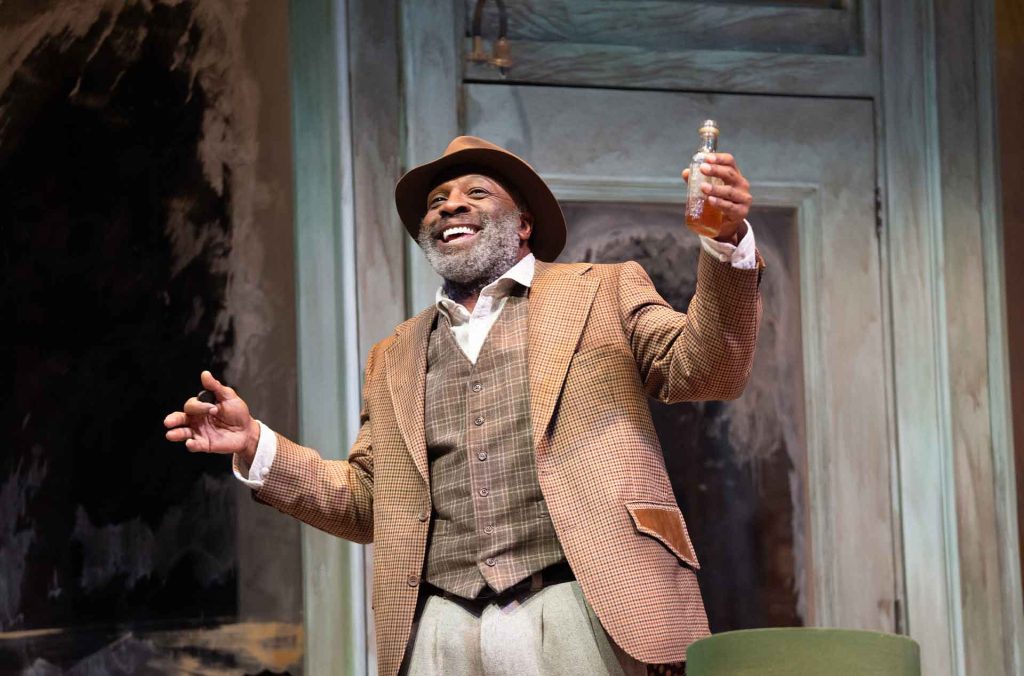
Tyrone Wilson as Fielding. Photo by Jenny Graham.
The owner of the jitney service, Jim Becker (James A. Wiliams), adds to the mix by being slightly more able to care about issues with a broader focus than the next ride. He leads the crew in detailing the faults of the city’s urban renewal plans for the neighborhood. The jitney office is supposed to be condemned so Pittsburg can build housing, but they all know that neighboring blocks have been condemned, vacated, and left for years without construction. He also sets the standards for behavior and performance, and Williams lets Becker do that with low-key, persuasive consistency.
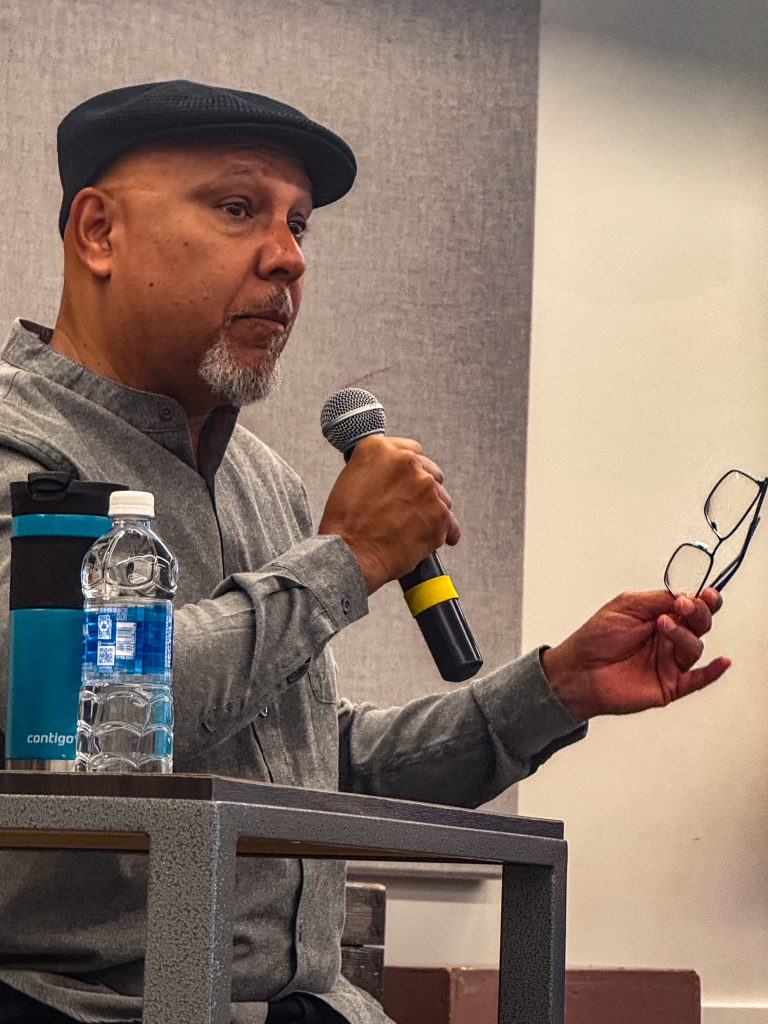
Director Tim Bond sharing insights during a opening weekend discussion
His son Booster (Chris Butler), just released from prison, brings the common complexity of including an ex-con in the community. His extra cautious politeness and cheap dressiness fits his status. We watch him and his father and others maneuver to figure out how to deal with each other. Where does he belong?
All of the actors and their characters add to the two and one-half hour vignette. Doub (Aldo Billingslea), Philmore (Christian Denzel Bufford), and Shealy (Reginal Andre Jackson) are distinct people, excellent, and enriching.
The remaining two characters and their interaction hit me the strongest. Youngblood (Preston Butler III) is young and maybe he should get a more modern profession, others wonder. He doesn’t have the laidback fatalism of some of his coworkers. He is driven to earn a better life (sorry for the verb).
There is a short time on stage for Youngblood’s baby mother Rena (Folami Williams). But, her appearance with its assertion of the right to better consideration pushes Jitney into my life growing up. Youngblood has been away from home evenings and Rena wonders if he’s having an affair or what. In reality he has been working multiple jobs to be able to afford a down payment on a house which he identified and bid on without Rena’s knowledge.
Even after Youngblood’s evenings away from home are explained away – satisfactorily to him – Rena remains unsatisfied. He made all the decisions as a man without consulting her. This declaration of women’s rights reminds me of my childhood and my white mother’s struggles.
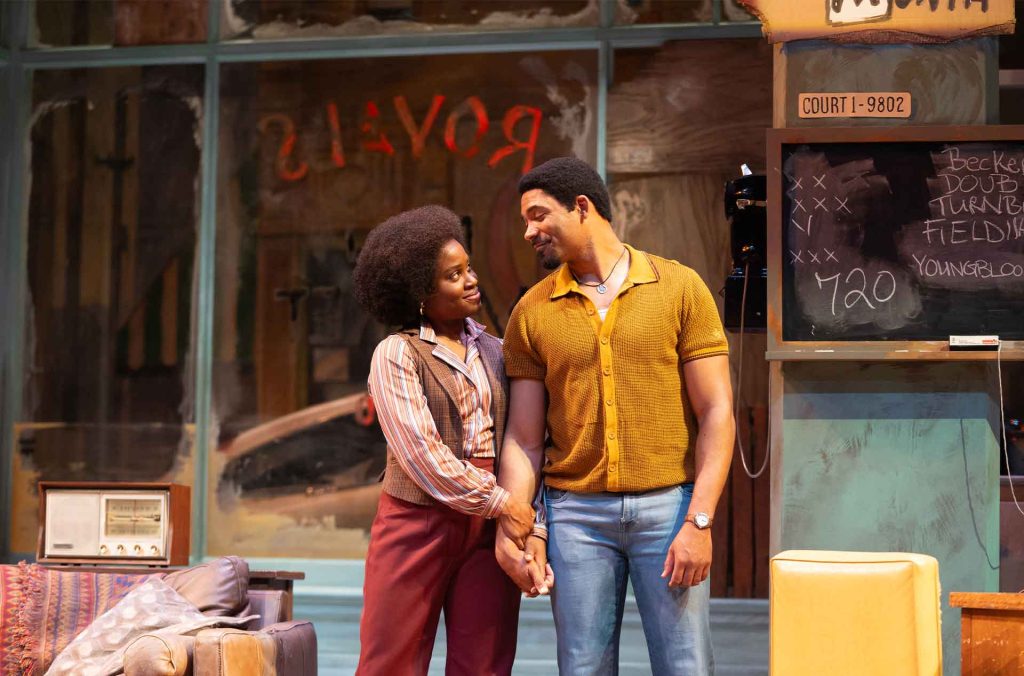
Rena and Youngblood... about their relationship. Photo by Jenny Graham.
Wilson nails the feeling of 70’s, at least as far as I know. I am not Black and was not part of any non-white ethnic community then or now. But, what Jitney shows on stage is in sync with that I observed from my perspective and with what friends have told me.
OSF’s performance brings me back in time, enlightens me, and entertains me. I truly felt like I was revisiting the 1970’s, racial and sexual role limitations and all.
Powerfully written and performed, Jitney definitely is

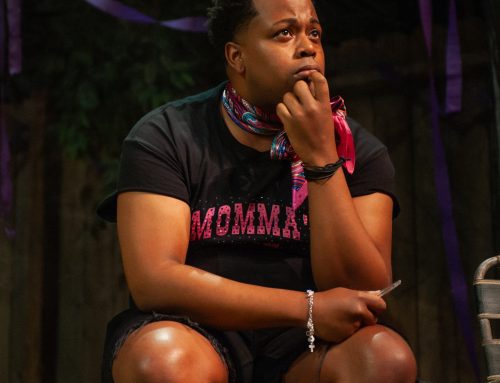
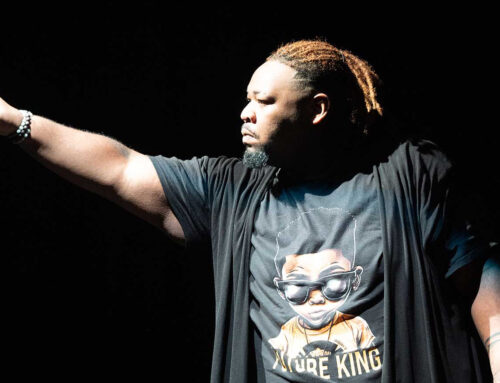
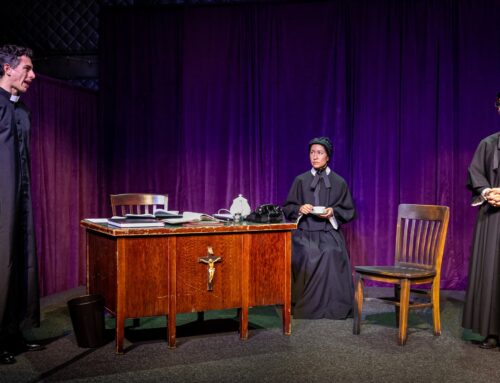

Leave A Comment